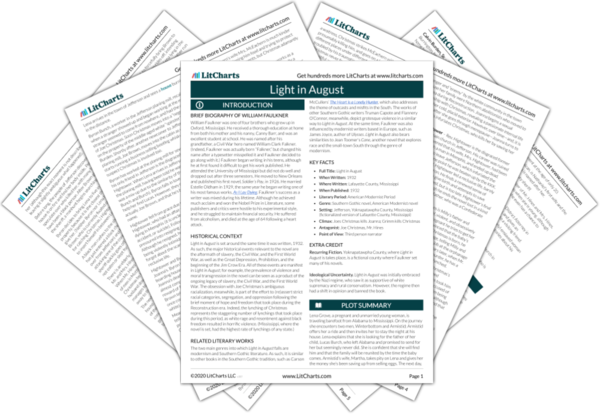Christmas’s behavior in this passage reveals his racist hostility toward black people—but this is of course complicated by the fact that Christmas himself apparently has black heritage. His specific thoughts, particularly the bizarre observation about black women, show how anti-black racism and misogyny combine to produce a strange, terrifying impact on Christmas’s psyche.
